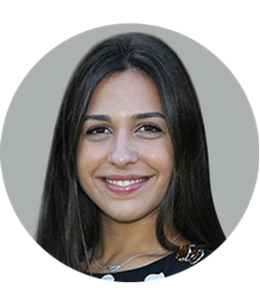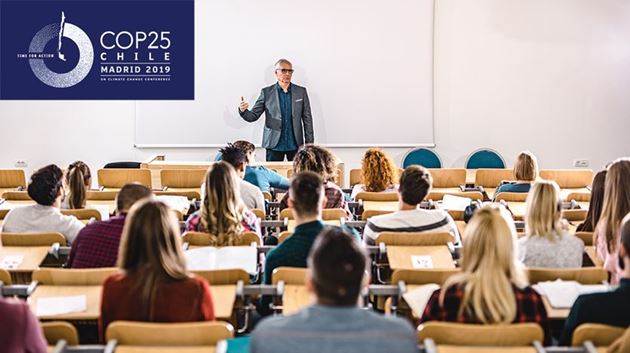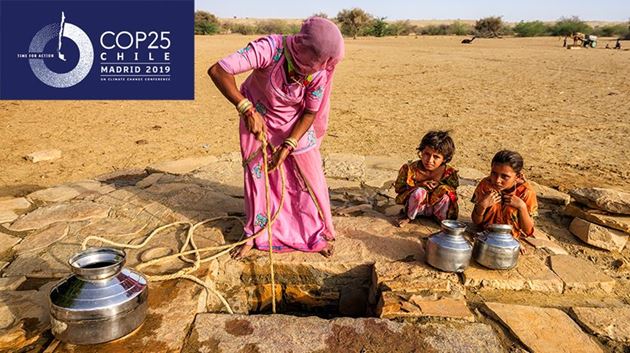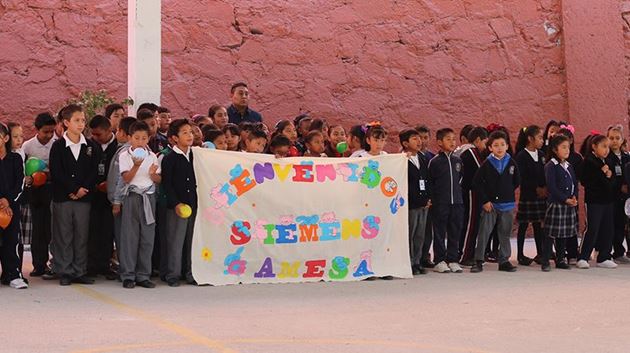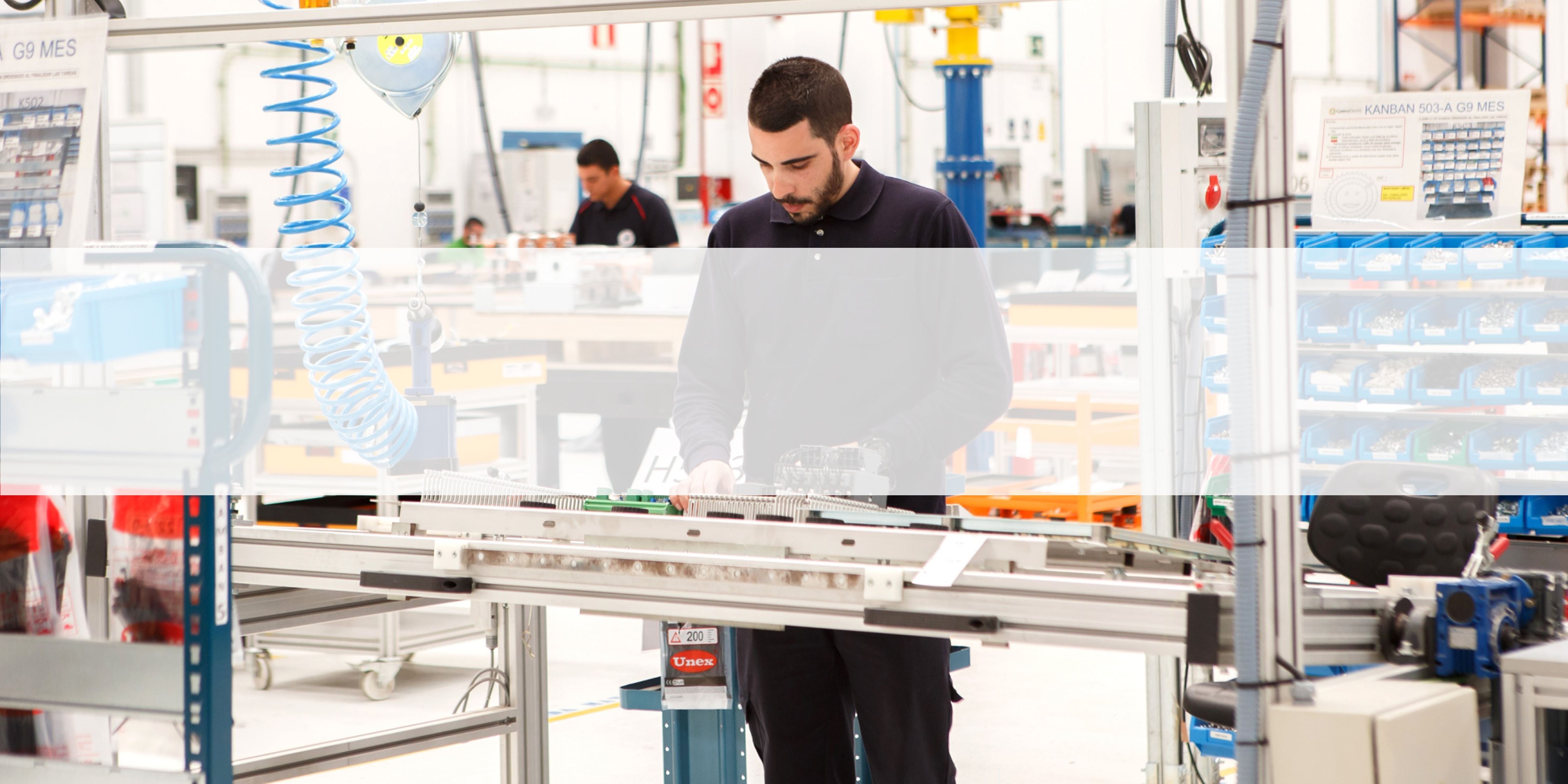
"I choose science, it makes me feel that I'm helping to create a better future"
Interview with Samuel Dapía, an intern in Siemens Gamesa
What do young people want to be in the future? In the midst of transition and change and, at a time when endless possibilities are opening up, where technology and access to information are advancing in giant steps, it is interesting to see that there is a real lack of young people who want to study STEM (Science, Technology, Engineering and Math) degrees. This is despite the sector undoubtedly being the key to the future.
To combat a lack of interest in these subjects, Siemens Gamesa is playing its part to encourage knowledge of STEM subjects among young people, through the creation of educational chairs. Through talks, classes and scholarships, the company encourages young people to choose science and technology degrees, so that the brightest minds study STEM subjects which are closely linked to the development of the renewable energy business.
Since 2010, the Siemens Gamesa Chair has focused on promoting teaching provided in educational systems through its collaboration with various universities around the world. The Chair principally focuses on teaching aerodynamics, composites, structures and other fields of science. Its aim is to continually update teachings by connecting it as quickly as possible with the most advanced science, technology and management methods; as well as beginning new lines of research, development and innovation (R&D+i).
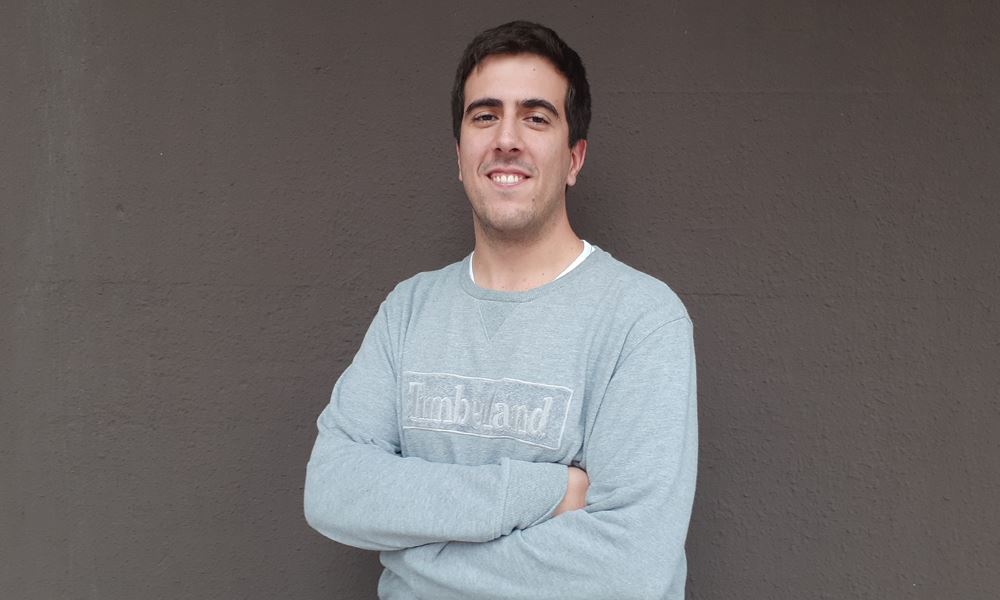
In order to recognize the merit of these students, Siemens Gamesa rewards the best research papers such as that of Samuel Dapía González, a 24-year aerospace engineer who was awarded for the best master's thesis on: ‘Influence of Blade modeling on wind turbine dynamics’ at the Polytechnic University of Madrid. Originally from Ourense, but based in Madrid for six years, he has been an intern at Siemens Gamesa since last June. His project consists of a work tool on the dynamic simulation of wind turbines, which helps to gain a better understanding of the instabilities that can occur in these turbines.
Smiling and somewhat shy with the cameras, he recounts his experience.
Q: When you were in high school, were you always sure that you wanted to study engineering or did you consider other options?
A: Since childhood, and then at high school, I always liked subjects such as maths and physics. From that time, I was quite clear that I wanted to study engineering, although I hadn't decided which field. I chose aeronautics in the end because there are more career options and opportunities, such as wind energy, which Siemens Gamesa gives me.
Q: What do you think is the most valuable non-technical education you have acquired during your degree?
A: It's all about teamwork. In the six years of our degree we have done a lot of work and presentations as a team, and that has helped us a lot because now when we start a new job or join a company, we already know how to collaborate on different projects with a group of people. It is essential to know how to work in a team in these cases.
Q: Do you think that the training you have received prepares you to face challenges such as climate change or sustainability?
A: I think so. My degree has certain subjects aimed at this topic and fields that place special emphasis on sustainability and renewable energy. For example, in the subject of air transportation we gave a lot of importance to saving fuel during air travel, and we also placed a special emphasis on the use of biofuels, to manage to completely reduce carbon dioxide emissions someday.
Q: And, talking about fighting climate change, do you think young people are truly environmentally conscious? How could we educate them so that more and more people join this fight?
A: I believe that young people are increasingly aware of the urgency of climate change. In the end, I believe that everything is based on education and that more investment in it or giving greater visibility to science studies would make the population collaborate to a greater extent to eradicate this problem. Events such as COP25, that recently finished is a way for all of this to gain more visibility and reach more and more people. I think that little by little with these types of summits more and more people will be aware and join the fight against climate change.
Q: Statistics show that science degrees are always the least chosen by young people, in fact, the last PISA Report concluded that Spain was at the tail-end of science skills. What else do you think could be done to encourage new generations to be interested in science degrees?
A: It is worrying that there are fewer and fewer young people choosing science degrees. The first thing I would say to today's students is to study what they like best. But if they end up choosing science, I would tell them that they have the opportunity to solve great technical challenges in a large number of areas and, today, with the the fight against climate change, renewable energy plays a very important role. In fact, it has become a sector where young people can flourish and, with their talent and creativity, contribute to a more sustainable energy transition.
Q: The project that Siemens Gamesa is rewarding you for is closely related to renewable energy, could you explain what it is? What benefits may it have for the sector?
A: My master's thesis is one of many prepared by the Renewable Energy department. It is another small cog to help to complete a work tool on the dynamic simulation of wind turbines and specifically help to better know the instabilities that can occur in these types of systems. As a practical example, it studies what position a blade should take when a wind turbine is stopped. Fatigue damage would constantly be reduced, and the life of the blades would be increased, which would reap financial benefits for companies in the wind sector.
Q: Why focus on wind energy as a topic for your master's thesis?
A: Over the years, the wind turbine design subjects of my degree became increasingly important and of interest to me and by the end of my time at university, I liked it even more because of my relationship with the lecturers who teach these subjects. In the end, I decided that wind is a great sector to focus on. In this whole process, I believe that the help of lecturers and how they motivate students is very important, because in my case, it was their encouragement that led me to want to devote myself completely to renewable energy.
Q: If you looked back, would you opt for science again? Why?
A: Yes, I don't regret my decision. In the end, I'm working in an area that I like, which is technology and, in this case wind energy, so I would choose science again, since it makes me feel that I'm contributing to creating a better future.
Q: How do you think the opportunity that Siemens Gamesa gives you will help you?
A: I'm currently an intern at Siemens Gamesa's Corporate Technology department. This department is responsible for carrying out innovative work on wind energy and, what we are currently working on is a new power generation system called AWES (Airborne Wind Energy Systems). These systems consist of an unpiloted aircraft (a kind of drone) that is capable of sustaining itself exclusively by wind. When they fly, they generate voltage in the cable that connects them to a drum or generator on the ground that produces energy. These devices are capable of harnessing wind energy at high altitudes compared to traditional wind turbines, so we are currently evaluating their viability.
My duties specifically focus on developing a more complete physical model to estimate the energy production of these systems and collaborate in building a cost model to study their viability against both onshore and offshore wind turbines, or to complement them.
The opportunity that Siemens Gamesa has given me allows me to learn and find out more about the world of wind energy and, in addition, it gives me the opportunity to start working on what I like: technology. I'm also learning to work more and more as a team and to undertake each project successfully.
